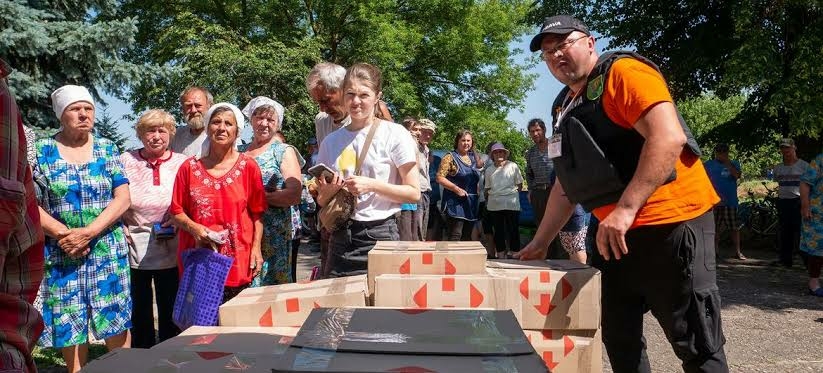UN agencies and entities have underlined their continued support to Ukraine, as Wednesday marked six months since the start of the devastating war in the country.
Ms Matilda Bogner, Head of the UN Human Rights Monitoring Mission in Ukraine, called for greater efforts to spare and protect civilians.
The mission has been in the country since 2014 when it began work documenting violations stemming from the fighting in the east between government forces and mostly pro-Russian separatists.
Bogner said the resulting escalation of the eight-year-long armed conflict has brought more deaths, sufferings, damages, and destructions.
“Every day, we speak with people affected by the war, and hear about and document violations of international human rights and humanitarian law, including war crimes,” she said in a statement.
Since the start of the Russian invasion on Feb. 24, there have been 13,560 civilian casualties, with 5,614 deaths, including 362 children, and 7,946 people injured.
Most casualties, 92 per cent, were caused by the use of explosive weapons with wide area effects in populated areas.
“We know that the actual figures are considerably higher. Each of these figures is a human being, whose life or health has been lost or damaged,” Bogner said.
The mission has also documented 327 cases of arbitrary detention and forced disappearance in territory controlled by Russian forces and affiliated armed groups and while 105 victims were released, 14 persons – 13 men and one woman – were found dead.
Additionally, 39 arbitrary arrests were recorded in Ukrainian government-controlled territory and 28 other cases that may amount to enforced disappearance.
“Many of these victims, on both sides, have faced torture,” Bogner said, who underscored that “human beings, whoever they are, must be treated with dignity”.
She added that prisoners of war also must be protected, as guaranteed under international laws.
While the mission has access to prisoners of war and other conflict-related detainees in government-controlled areas, this is not the case for those held in other locations.
“We call on the Russian Federation to grant independent monitors full access to all individuals detained in relation to the armed conflict by the Russian Federation, including those held by Russian-affiliated armed groups,” she said.
Throughout the war, the World Food Programme (WFP) has been using every opportunity to assist people, both within Ukraine and beyond.
WFP has disbursed more than $200 million to internally displaced Ukrainians, while some 11,000 families in neighbouring Moldova are receiving cash transfers to cover additional expenses for hosting Ukrainian refugees.
Overall, nearly seven million people have found shelter in European countries, according to the UN refugee agency, UNHCR.
WFP reported that within days of the start of the conflict, staff began serving ready-to-eat meals and distributing bread to people in Ukraine.
Kits, containing items such as meat or beans, sunflower oil, pasta and rice, are also being provided to families wherever food is unavailable or difficult to access.
Prior to the war, Ukraine was a major global breadbasket and produced enough food to feed 400 million people a year.
WFP has been working with the government and partners to both push for and facilitate grain exports through key Black Sea ports, as well as alternative land river routes.
Last week, the first shipment of Ukrainian grain for the agency’s operations left the port of Pivdennyi in Odesa and is now on the way to the Horn of Africa, where the spectre of famine haunts more than 20 million people.
Amid the ongoing global food crisis, WFP explained that allowing the export of Ukrainian grain is critical to stabilising global markets and alleviating hunger, but it also has direct benefits for Ukrainians.
The agricultural sector is an essential component of the economy, and also a direct source of livelihood for many of the 13 million citizens living in rural areas.

















Discussion about this post